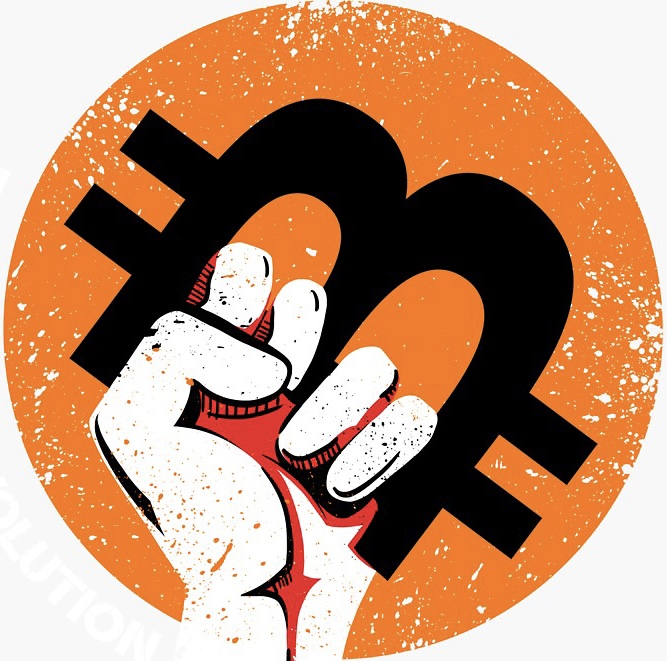Initially, LinkedIn was just another site where you could find jobs. It was simple to use, simple to connect with others; it even had some friendly groups with meaningful discussions.
And then it gained monopoly as the “sole” professional network where you could actually land a job. If you are not on LinkedIn now, you are quite invisible in the job market. Recruiters are concentrated there, even if they have to pay extremely high prices for premium accounts. The site is horrible now: a social network in disguise, toxic and boring influencers, and a lot of noise and bloated interface to explore.
When Google decided to close their code.google.com, GitHub filled a void. It was a simple site powered by git (not by svn or CVS), and most of the major open-source projects migrated there. The interface was simple, and everything was perfect. And then something changed.
GitHub UI started to bloat, all kinds of “features” nobody asked for were implemented, and then the site became a SaaS. Now Microsoft hosts the bulk of open-source projects the world has to offer. GitHub has become a monopoly. If you don’t keep your code there, chances are people won’t notice your side projects. This bothers me.
Rant over. I hate internet monopolies.
“Show us your GitHub”
Sure, here it is
“Looks empty”
Ya, I code for work, it’s all in private repos or in Azure Devops.
“So you don’t contribute to open source in your free time?”
No, I spend free time with my family. Again, I code for work, why on earth would I also use my free time for extra coding
“Thanks for your time but…”
Nah thanks for yours, I don’t wanna work for a company that expects me to code for them for for 8 hours and then go and code for someone else for free for more hours. That’s not a healthy work life balance, dickhead.
Edit: well this blew up (in a small lemmy kinda way). To clarify, before I coded for a living I coded as a hobby. Since I now do it full time, I don’t have any itch to scratch, I get my fill 40 hours a week. I’d ONLY be contributing to keep my GitHub looking a certain way for recruiters that one year in five I’m jobseeking and that feels like a waste of time. In reality it’ll probably be dark green the week before I started interviewing when I updated my website and then nothing before that until the last time I was interviewing.
Also, I chose to have a family and that takes effort, time and precedence over hobbies for me. If you also made that choice and you can code full time, have a healthy relationship with your wife and kids and still find time to have hobby code projects, all power to you. I don’t have the energy to open the laptop back up and get into something by the time the kids are in bed and I’ve spent some time with the wife. I’m not staying up into the night so a recruiter can glance at a chart and judge me to be a good or bad dev by how green it is.
How do I improve my skills over time? Tbh if the company I’m working for doesn’t allow me to block out a couple of hours to half day a week for learning I’m at the wrong company. I read, follow along with tutorials, experiment and think about how what I’m learning could be applied to the product I work with. Then if an opportunity to apply it comes along, I take it and either fail fast or bring something new, of value to the table.
Yup, the chart still goes green with contributions to private company repos, but those contributions also ain’t from my personal GitHub account, they’re from the one linked to my work email and I imagine they’ll close that account pretty quickly when I leave. Idk how that works tho, I only worked in one team in my whole dev career that seriously uses GitHub as source control, and they’re being moved to ADO as we type. GitHub is the go to for FOSS, but I don’t work in FOSS, I work in enterprise software and there’s much better enterprise git providers than GitHub (imho, ymmv). You can even throw the question back “do you actually use github here? If so can you tell me what lead you to go with that instead of other source control providers?” or side step it “I don’t really use github but I’m experienced in Azure DevOps and Team Foundation Server plus I’m fluent in git command line so I’ll be able to skill up in GitHub specifics pretty quickly if I need to”. Interviews are two way streets, I’m interviewing a company as much as they’re interviewing me, I have standards on where I’ll choose to work.
If you want a portfolio, I’ve got one, it’s on my website, the url of which is on my cv. Knock yourself out, sign up if you like, it’s public. I even updated it just for you last week.
Y’know why recruiters ask to see your github? Because they read in a book or a blog somewhere that that’s what they should ask when interviewing developers. 21 year old graduate developers looking for their first junior position, sure, maybe. That isn’t all devs tho.
I’d love to see recruiters who recruit in their free time, or surgeons who perform surgery in their free time.
there are tons of developers and technical folks that still find it fun and enjoyable to work on personal projects.
i mean, how else do you build new skills or gain familiarity without stuff you don’t use at work?
That’s called a hobby. And hobbies are great and lots of fun.
Monetizing hobbies turns them back into a job.
“programming” is so broad though. surely there’s room to have it be both work and a hobby ?
i mean, it is for me and lots of folks i know.
Yeah same as artists, would you rather commission an artist who says ‘i don’t really like art it’s just a 9-5’ or someone who say ‘art is a passion, I love creating and am part of various art communities to develop and grow my skills’
Musicians, writers, photographers, all the creative industries are full of people totally dedicated to their passion or at least deeply interested in their field - of course people are going to want to employ someone that constantly improves and evolves their knowledge and skills
Even artists don’t end up working on art every chance they get though. Most professional artists are just that. It’s the artists who haven’t made it yet that are making art in their off time
I get where you come from. I don’t code after work much, but if nobody did, there wouldn’t be much OSS. As for that interviewer, he’s a dickhead.
Fintech is easy to deal with in this regard.
“do you have code samples you can share?”
“would you be happy if an employee interviewed elsewhere and used your codebase for work samples?”
I see two points in your argument:
Everything becoming a social network
People working at tech companies have to justify their salary somehow and this is low hanging fruit for adding ‘features’ as all people feel some need for connection. Feeling that a place is alive with other people will motivate your more to engage with it, rather than say, your own Git hosted server. I don’t mind the social features added to GitHub as long as they don’t take the main stage, like it did in the LinkedIn transformation.
GitHub monopoly of open source
GitHub has for most of the time been the main place for open source. I don’t see a monopoly as necessarily bad as long as it remains focused on some values other than profit. I would rather have one big Wikipedia than a shitload of small fractured Wikipedias. Can it become a problem going forward, like it did with Reddit? Definitely, but I am cautiously optimistic. And in the worst case, git is heavily decentralized by design so you’re one
git remote add && git pushaway from moving. Migrating issues would be a bit more of a hassle, but surely there are solutions. And CI is not easily portable, but not a huge amount of work to convert to other formats.deleted by creator

monopoly: the exclusive possession or control of the supply of or trade in a commodity or service.
GitHub is not a monopoly: it has competition. If you’re upset about it’s market share, switch to GitLab, Bitbucket, or host your own instance. If you’re upset about people not being aware of the other options, be an advocate and spread awareness of the alternatives.
It’s not a monopoly, but it’s still an oversized influence on the market. I think the poster is arguing that: when have you heard a recruiter ask you for your bitbucket account? But they will look at github.
If they ask for a GitHub but you have a bitbucket send them the repo link to your bitbucket…
Yep, ‘Github’ is just a placeholder. If Bitbucket had the biggest market share (god forbid) the recruiter would ask for your bitbucket.
I’ve put my gitlab link in my resume and it has never had anyone spark a question. Usually the recruiter isn’t concerned with it saying “github” so much as you try to answer it with something instead of a blank stare / left on read.
I’m very split between Github (currently) providing a really nice interface/collection/way to access all kinds of open source projects and the obvious ‘out-of-control centralisation’ by the mega corp Microsoft.
It definitely got a little bit bloated the last years, but I still think it has a generally nice interface (browse code/review stuff, simple issue/PR system, simple way for CI via actions etc.).
But I really hope something like https://forgefed.org/ takes off someday, I feel like if the barriers are much lower to get onto a different network with the same user (without registering etc.) decentralisation can lead to more innovation in this space (management of all the stuff that Git doesn’t manage itself, like issues, PRs etc.).
The beauty of Git though is that it’s decentralized, so you can just mirror it on Github while mainly using a different platform. If you want a bigger userbase interacting/contributing with your project you’ll allow PRs and issues there and if not just add a link to the README that points to the platform you’re using…
At least, there’s Codeberg, run by a German nonprofit, who’s challenging the monopoly. It is aimed exclusively for FOSS projects, private repositories are forbidden. They are running Forgejo as their bloat-free software forge server.
Now, I think every Web2 website must be operated by a nonprofit.
From my PoV it’s probably many of these projects are effectively public good spaces. Hosting a code repository has become less of an esoteric thing and turning into a public good benefit (like a physical library but virtual for code). Spaces like Reddit and Twitter are todays analogous of a public discussion forum in a park or at a bar.
Internet tools have become so ubiquitous they are critical to serve public needs and public benefits. However these internet spaces are increasingly commercialized and privatized, which runs against them being valuable public goods (see the difference between Wikipedia, run primarily for public benefit, and Wikia/Fandom).
Has GitHub actually done anything negative? Your comments really just sound like fear mongering, I can’t see any actual issues.
What is the bloat you’re referring to? The UI is clean and simple. Navigating and searching code is intuitive. The issue tracker is basic but reliable. Releases are clear. GitHub Actions are complex but featureful and incredibly useful. GitHub Packages are basic but useful. GitHub Copilot is damn impressive.
They scanned open source repos and made an LLM out of it. Now companies can profit from open source code without contributing back to the ecosystem. The only contribution they make is the money they pay to Microsoft for Copilot. So Microsoft is profiting from OSS code and stifling its community.
Does this outweigh the free hosting of the code? IDK
I agree with the other comment. It’s Open source after all, they could’ve just crawled the web otherwise.
Private repos on the other hand is a different story.
I write open source code because I want tools to exist that make the world better, coding AI allow me to make better tools faster so I’m very happy if they used some of my code to train it.
I’ve saved hours of research and key poking thanks to AI, these early ones are just the start especially as people use them to help make everything needed to create better ones. We’ll get to the point where writing a new floss tool will be as easy as describing it briefly.
cs.github.com is the best code search ever offered, especially at GitHub scale.
deleted by creator
Well I feel like all the “modern” SPA stuff that got recently added, certainly adds “some” kind of bloat on top, it’s not as snappy anymore as it once was, but I think most of the stuff is improving QoL, so I think it’s reasonable…
Github has always had being a job site be it’s secondary feature.
Except that it has a slightly higher bar of entry to recruiters and recruitment bots spreading toxic positivity, and anyone asking for a job is able to prove (at least some of) their value by showing off their code and how they participate publically in other repos (if at all).
deleted by creator
No, I don’t see how GitHub it turning into LinkedIn. Everything you said are definitely new things GitHub is doing but none of them are things LinkedIn does. LinkedIn is pretty much just Facebook with career applications built-in.
I am not saying they are competing on the same niche. I am saying both sites started well, and they transformed into something worse, profiting by their monopoly on their specific markets.
It sounds like your issue is with capitalism rather than GitHub. The same logic is applicable to many corporations.
error loading comment
Yep, moved off GitHub the moment they announced it cuz I thought they were gonna pull the old Microsoft embrace extend extinguish
I wouldn’t say it’s a new LinkedIn, but it’s definitely a defacto monopolio. It pains be that Cargo (the official rust packaging system) is so integrated with it. My own personal hobby projects are self-hosted on a gittea instance right now, but I still have a github account to contribute to a friend of mine’s project which is, sadly, hosted there.
Its not anymore, the new sparse index protocol is not using github.
As an aside, anybody looking at alternatives or just similar tools should check out pijul which is another vcs that implements a very interesting algorithm for patches. They also host a very simple interface at https://nest.pijul.com.
Hi! I am new to the programming world, and everything involved. What do you think about gitlab? Many people are using it instead Github. Also I heard about Codeberg, but I dont know anything about it :)
Advantage of Github over Gitlab is code discoverability. My organization hosts Gitlab instance but I would still rather host my open source project on Github instead, because its impossible to collaborate on Gitlab with external users who dont have an account on our instance.
Once there is a federation feature similar to Lemmy, I would be happy to host everything there.
This could be what you’re looking for. Their main implementation is a gitea fork, but I’ve seen mentions of gitlab as well. Unfortunately I don’t think github would ever consider being compatible, that would just lose them users.
Thanks. There is also a Gitlab issue requesting this feature, which I am tracking.
It needs to reach a polished state before organizations and university adapt it. So something like what you linked probably wont fly.
Every time I have to try to find things on gitlab I have a generally harder time doing so than on github. Maybe I’m just used to github’s layout, but gitlab’s just seems awkward to me. Also, I think non-tech-savy people will inevitably be confused by having to click “deployments” to get to releases; and on release pages, below where you actually download files, it always says “evidence collection”, which sounds really ominous (for end users)










